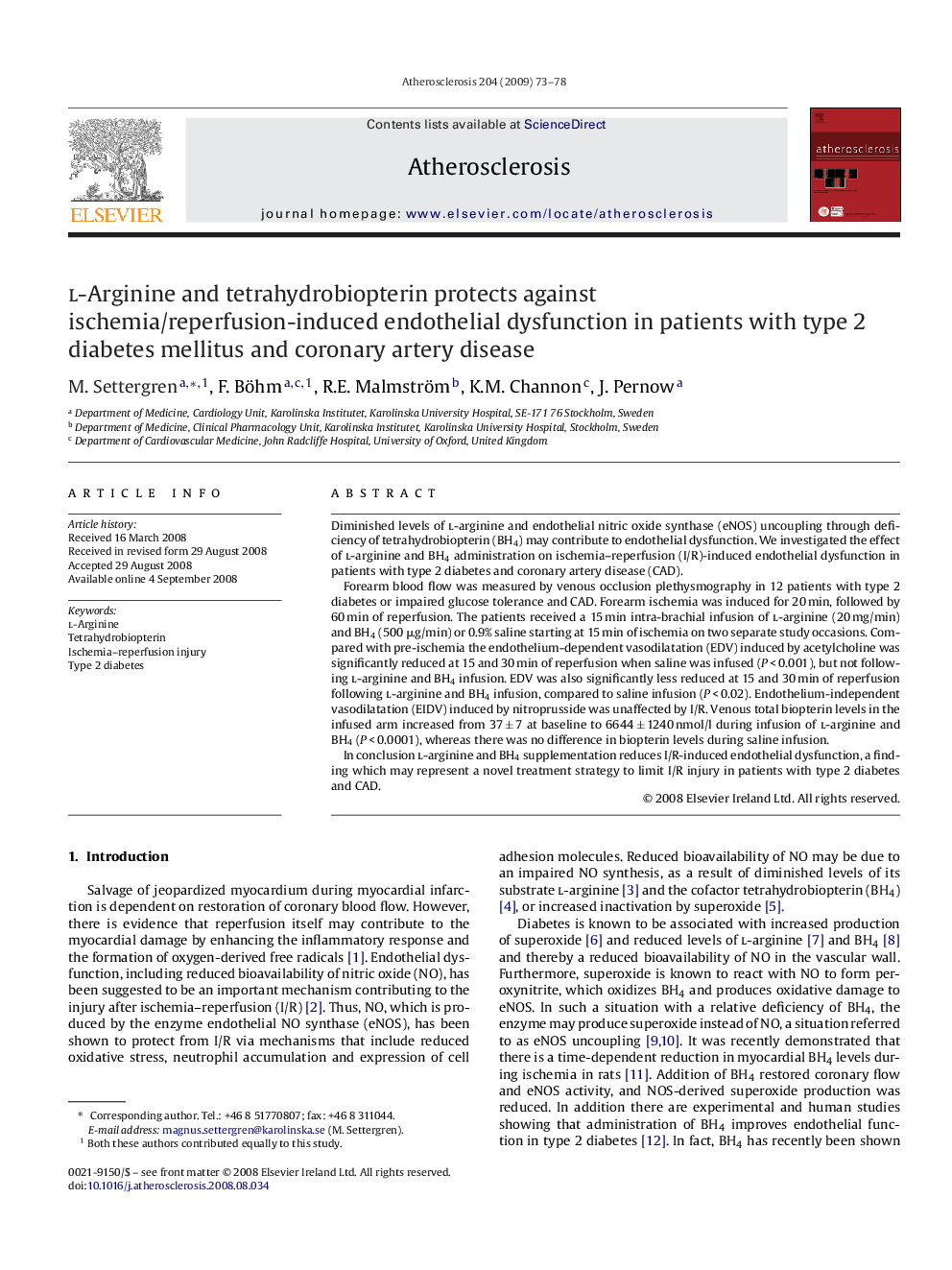| Article ID | Journal | Published Year | Pages | File Type |
|---|---|---|---|---|
| 2893604 | Atherosclerosis | 2009 | 6 Pages |
Diminished levels of l-arginine and endothelial nitric oxide synthase (eNOS) uncoupling through deficiency of tetrahydrobiopterin (BH4) may contribute to endothelial dysfunction. We investigated the effect of l-arginine and BH4 administration on ischemia–reperfusion (I/R)-induced endothelial dysfunction in patients with type 2 diabetes and coronary artery disease (CAD).Forearm blood flow was measured by venous occlusion plethysmography in 12 patients with type 2 diabetes or impaired glucose tolerance and CAD. Forearm ischemia was induced for 20 min, followed by 60 min of reperfusion. The patients received a 15 min intra-brachial infusion of l-arginine (20 mg/min) and BH4 (500 μg/min) or 0.9% saline starting at 15 min of ischemia on two separate study occasions. Compared with pre-ischemia the endothelium-dependent vasodilatation (EDV) induced by acetylcholine was significantly reduced at 15 and 30 min of reperfusion when saline was infused (P < 0.001), but not following l-arginine and BH4 infusion. EDV was also significantly less reduced at 15 and 30 min of reperfusion following l-arginine and BH4 infusion, compared to saline infusion (P < 0.02). Endothelium-independent vasodilatation (EIDV) induced by nitroprusside was unaffected by I/R. Venous total biopterin levels in the infused arm increased from 37 ± 7 at baseline to 6644 ± 1240 nmol/l during infusion of l-arginine and BH4 (P < 0.0001), whereas there was no difference in biopterin levels during saline infusion.In conclusion l-arginine and BH4 supplementation reduces I/R-induced endothelial dysfunction, a finding which may represent a novel treatment strategy to limit I/R injury in patients with type 2 diabetes and CAD.
